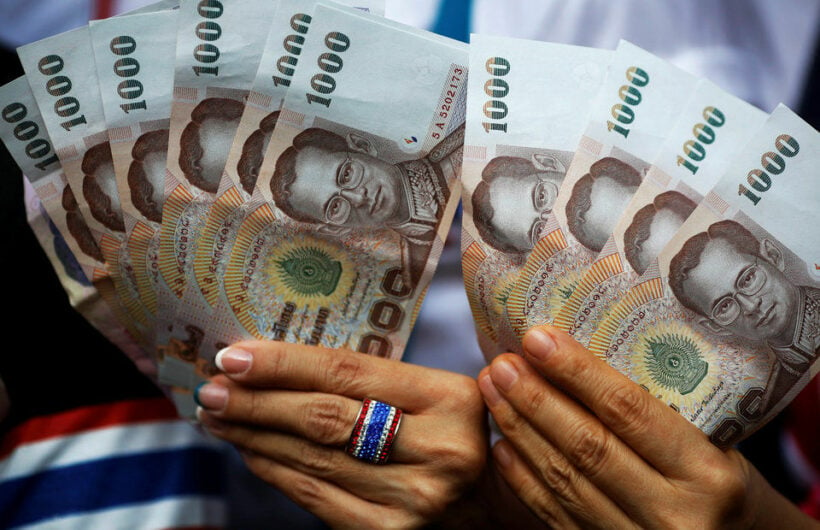Thailand’s struggle with high household debt and political promises

Kavita Wongyakasem, a 48-year-old business owner in Bangkok, struggles daily to keep her household afloat. Running a company that provides services for a major energy firm, she owns a house in Nonthaburi, drives a pickup truck, and sends her two daughters to good schools. But beneath the surface, she is eight million baht in debt and lacks any cash savings.
“Every minute, I think about it,” Wongyakasem admits, tearing up as she speaks. This personal story is reflective of a broader problem in Thailand. The country has one of the highest household debt to Gross Domestic Product (GDP) levels in Asia, surpassed only by South Korea and Hong Kong according to the Bank for International Settlements. A staggering one in three Thais are trapped in debt.
Addressing the issue has become a focal point for the May 14 general election, with all major parties promising wage increases, debt moratoriums, guarantee-free loans, and handouts. In the past, populist policies contributed to mounting household debt as the government sought simple solutions to stimulate the economy. For example, between 2011 and 2012, the Yingluck Shinawatra administration offered a significant tax rebate to first-time car buyers, which led the household debt percentage to skyrocket from 60.3% at the beginning of 2011 to 71.8% by the end of 2012. That program ultimately cost the government an estimated 91 billion baht.
Pita Limjaroenrat, the prime ministerial candidate for the Move Forward Party, is proposing annual minimum wage revisions to tackle the long-standing inequality issue. Limjaroenrat has quickly gained popularity, and he acknowledges that “once you’re in debt, it’s very hard for you to move up the ladder.”
In February, the Bank of Thailand voiced its concerns about the problem, stating that household debt ratios should be reduced from 86.9% of GDP at the end of 2022 to below 80% to mitigate financial risks. Analysts warn that political parties’ extravagant election promises could heighten the macroeconomic risks posed by debt. According to estimates from the Thailand Development Research Institute (TDRI), the policies from nine major parties could amount to 3.14 trillion baht, just shy of the annual budget of 3.18 trillion baht.
The debt burden affects many Thai people and can last a lifetime. Central bank data reveals that 58% of individuals aged 25 to 29 are in debt, while a quarter of those aged over 60 have outstanding loans averaging more than 400,000 baht. Approximately 30% of credit card holders or those with personal loans have a combined debt of 10-25 times their income, doubling international standards.
The Covid-19 pandemic has exacerbated the issue, with the number of bad debt accounts nearly doubling to 10 million. While the pandemic did not impact the population as severely as in other countries, the tourism-dependent economy took a significant hit. Achin Chunglog, president of a nationwide volunteer group assisting those struggling with debt, compares the situation to being “suddenly swept off a cliff.”
A survey conducted in April by the University of the Thai Chamber of Commerce (UTCC) highlights that the debt levels of 1,300 respondents earning up to 15,000 baht monthly were at their highest since 2010. Additionally, a March study found that 90% of farm households in rural areas had outstanding loans due to a “vicious cycle of debt.”
For Kavita Wongyakasem, the recent struggle with declining income and increased expenses to protect her 20-member team from the virus led her to borrow from outside the banking system. And while she recognises that the handouts offered by political parties sound appealing, she believes they will not alleviate the burden faced by those heavily in debt. For millions of Thai families like hers, the struggle continues.
Latest Thailand News
Follow The Thaiger on Google News:


























